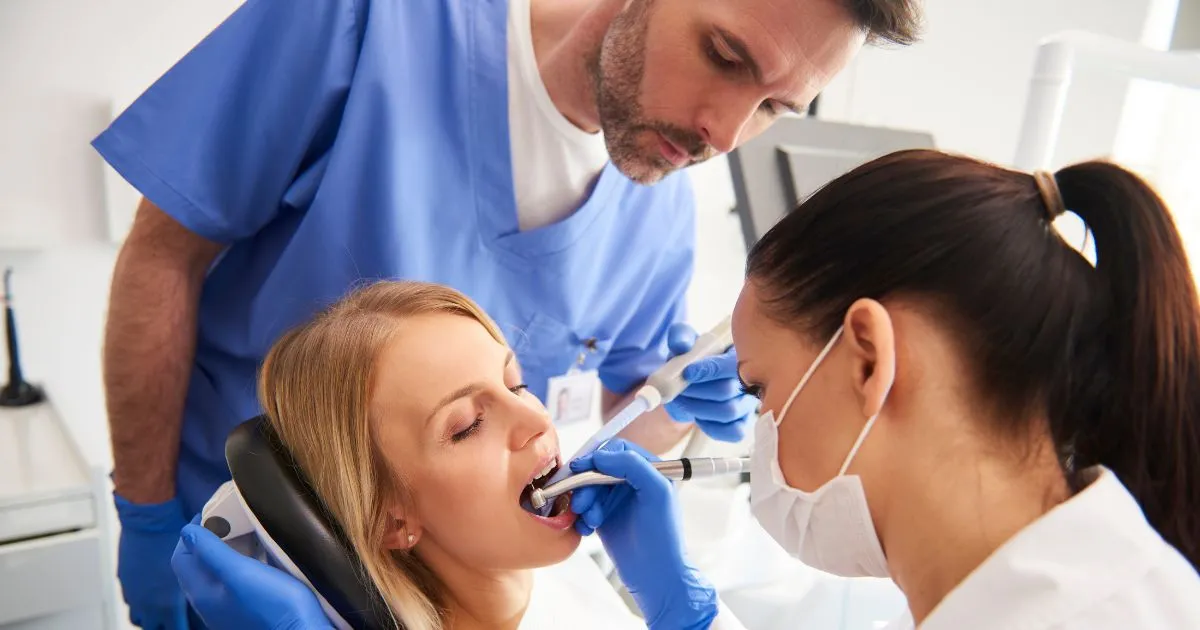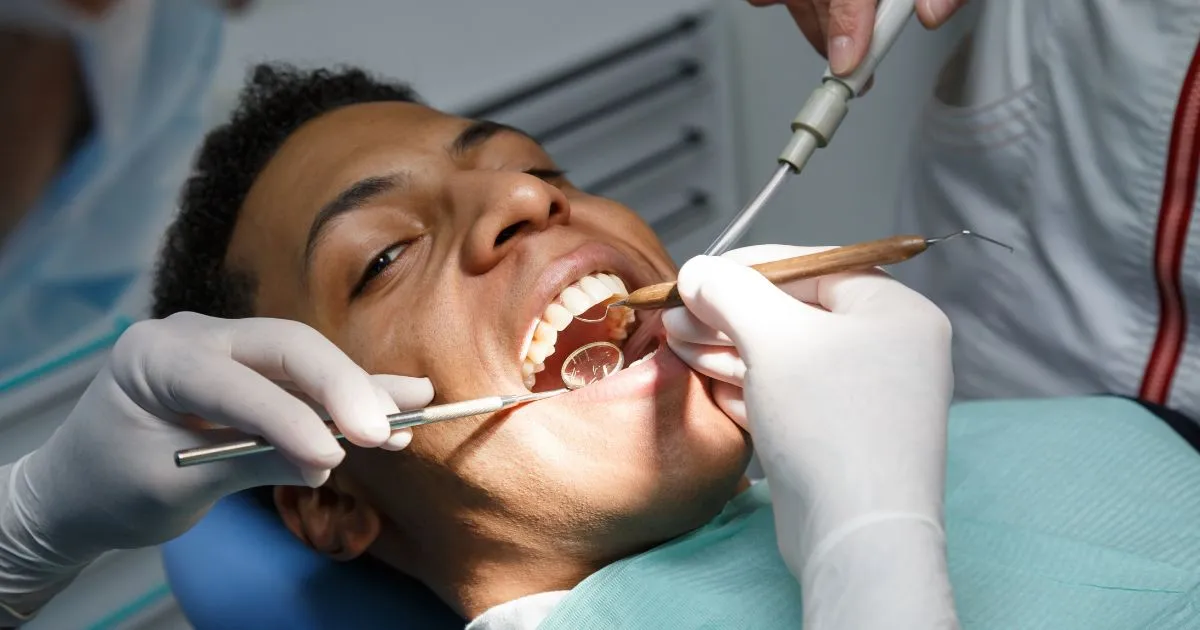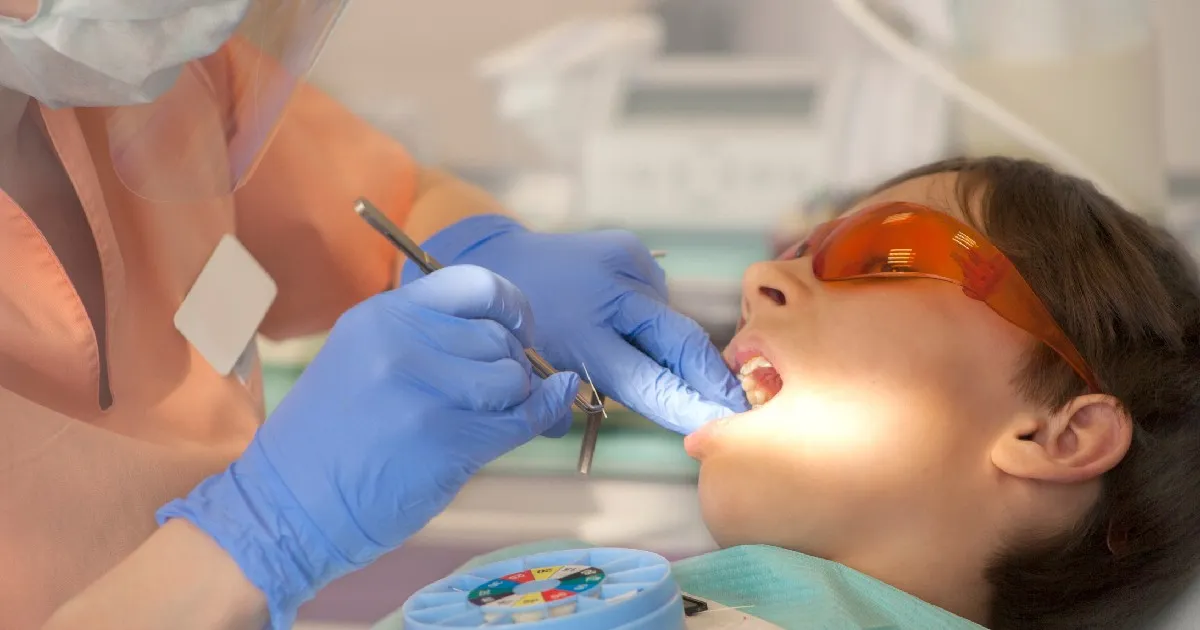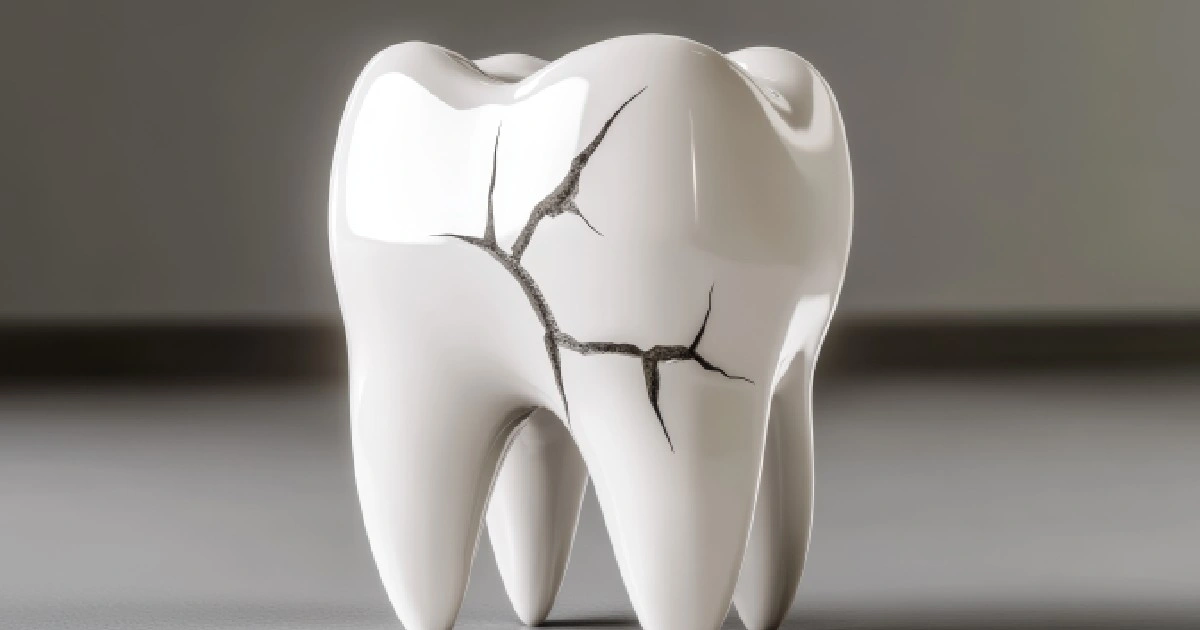Table of Contents
Since problems like fractured and chipped teeth can have effects that go beyond aesthetics, dental health is crucial to overall health. Neglecting these dental problems can lead to chronic discomfort and may even escalate into more serious oral health complications. As such, maintaining a healthy smile and general well-being depends on being aware of and acting quickly on such dental conditions.
What Causes Teeth to Fracture or Chipped?
Teeth can fracture or chip for several reasons:
- Accidents or Trauma: Physical injuries from falls, sports, or vehicular accidents can exert tremendous force on teeth, leading to fractured and chipped teeth. Such trauma can cause immediate, visible damage or create hairline cracks that develop into more extensive fractures over time.
- Biting on Hard Objects: Biting down on hard foods like nuts, ice, or hard candies, or non-food items like pen caps can subject teeth to excessive force, causing them to fractured and chipped teeth. It is especially true for teeth already weakened by decay or restorations.
- Tooth Decay: Decay weakens the structure of teeth by eroding enamel and creating cavities, reducing their strength and making them more prone to fractures. Severe decay can leave teeth so compromised that even normal chewing can cause them to break.
- Old or Large Fillings: Large fillings, ancient ones, can weaken the overall structure of a tooth as they replace the natural tooth material. These teeth may chip or crack around the filling as a result of the pressure of biting and chewing over time.
- Bruxism (Teeth Grinding): Regular grinding or clenching of teeth, often subconsciously or during sleep, exerts excessive force on teeth, leading to wear, chips, and fractures. The constant pressure and motion can cause microfractures that gradually worsen.
- Abrupt Temperature Changes: Exposing teeth to extreme temperature variations, such as consuming hot food followed by an ice-cold drink, can cause rapid expansion and contraction of tooth enamel, leading to cracks. These temperature-induced stresses can create tiny fractures that can develop into larger cracks over time.
- Age: As we age, teeth naturally lose moisture and become more brittle, increasing the likelihood of chipping or fracturing. The cumulative effects of years of chewing and exposure to acidic foods and drinks also contribute to weakening teeth in older adults.
Understanding these causes is important for the prevention and early treatment of fractured or chipped teeth.
Recognizing the Symptoms
In order to receive timely treatment and stop more dental problems, it is critical to recognize the symptoms of chipped or cracked teeth. Key symptoms include:
- Visible Cracks or Chips: The most direct indication of fractured and chipped teeth is visibly noticing a part of the tooth missing, a crack, or a chip. These can be anything from minor cosmetic problems to more serious fractures that jeopardize the structural integrity of the tooth.
- Pain When Chewing: Experiencing pain or discomfort when biting down, especially when releasing the bite, is a common symptom of fractured and chipped teeth. This pain could be sharp and localized to a specific tooth, indicating a possible crack or chip.
- Sensitivity to Temperature: A crack in the enamel that has exposed the tooth’s more sensitive layers may cause a tooth to be more sensitive to hot or cold meals and drinks. This sensitivity, which can vary from slight to severe, is frequently a crucial sign of tooth decay.
- Sharp Edges: Fractured and chipped teeth may have sharp or jagged edges that can be felt with the tongue. This is a clear physical sign that the tooth’s integrity has been compromised.
- Pain that Comes and Goes: Intermittent pain that isn’t constant but occurs in response to specific triggers, such as biting down or being exposed to extreme temperatures, can indicate a cracked tooth. This type of pain is often complex to pinpoint and may come and go unpredictably.
- Swelling of the Gums: Swelling or inflammation around a tooth, especially if it’s painful or tender to touch, can suggest fractured and chipped teeth, potentially indicating an underlying problem like an infection. This symptom should not be ignored as it can signify more serious dental issues.
- Discoloration: A tooth that has become discolored, appearing greyer or darker than surrounding teeth, might be fractured. This discoloration can be due to internal damage within the tooth or a sign of dying nerves and blood vessels inside the tooth.
If you experience any of these symptoms, seeing a dentist for a proper diagnosis and treatment is essential to prevent further damage or complications.
Prevention and treatment for fractured and chipped teeth
Preventing and treating fractured and chipped teeth involves both proactive measures and appropriate dental interventions.
Prevention
- Good Oral Hygiene: Frequent brushing and flossing help avoid gum disease and tooth decay, two conditions that deteriorate teeth and increase their vulnerability to fractures. Good oral hygiene is the foundation of solid and healthy teeth.
- Regular Dental Checkups: Regular dental checkups make it possible to identify possible issues early on, such as cavities or weak areas in teeth, which can be fixed before they cause fractures. These checkups also include professional cleanings that remove plaque and tartar buildup.
- Wear Mouthguards: Using mouthguards during sports or physical activities helps protect teeth from trauma, which is a common cause of chipping and fractures. When participating in activities that put the mouth at risk, such as contact sports, mouthguards are a must for adults and kids.
- Avoid Hard Foods: Being cautious with hard foods like candies, ice, or nuts helps prevent accidental chipping or cracking of teeth. Teeth should not be used as tools to crack complex objects.
- Treat Bruxism: If you grind your teeth, using a night guard can help protect them from the excessive force that can cause fractures. Bruxism, often a subconscious habit, can significantly weaken teeth over time, making them more prone to damage.
- Use Tools, Not Teeth: Refrain from using your teeth to open bottles or packages since this puts unnecessary strain on them and increases the risk of fractures and chips. Teeth are not designed to be used as tools and can be easily damaged by these activities.
- Balanced Diet: Consuming a nutritious, vitamin- and mineral-rich diet keeps teeth strong and less prone to breaking. Foods high in calcium and phosphorus, for instance, play a key role in maintaining tooth enamel strength.
Treatment
- Dental Bonding: Dental bonding, which entails filling the damaged region with a resin that matches the tooth color, is an excellent way to restore a chipped tooth’s appearance and functionality. This relatively easy treatment may frequently be finished in a single visit.
- Veneers: Porcelain veneers are thin coverings placed over the front of the teeth, ideal for restoring the appearance of chipped front teeth. They provide a long-term solution for cosmetic repairs.
- Crowns: When there is considerable damage to a tooth, a dental crown is utilized to cover the entire tooth and restore both function and look. Crowns are custom-made to fit and match the natural teeth.
- Root Canal Therapy: A root canal procedure may be necessary if the fracture extends into the tooth’s pulp in order to remove the damaged nerve and prevent infection. The placement of a crown often follows it to protect the tooth.
- Dental Implants or Bridges: For teeth that are severely damaged or lost, dental implants or bridges serve as permanent solutions to restore both function and aesthetics. Implants replace the entire structure of a lost tooth, while bridges span the space of one or more missing teeth.
- Composite Fillings: Small fractures can often be repaired with composite fillings, which are matched to the color of the tooth for a natural appearance. These fillings are durable and can restore most of the tooth’s original strength.
- Professional Evaluation: For the best course of action, consult a specialist for an assessment that takes into account the location and severity of the fracture or chip. A dentist can provide a comprehensive evaluation and recommend the best course of action.
Early intervention is critical to treating fractured and chipped teeth effectively, preventing further damage and maintaining oral health.
Conclusion
Understanding the causes and symptoms of fractured and chipped teeth is crucial for maintaining good oral health and ensuring timely intervention can save the tooth and keep a healthy smile. Endodontic Specialists by Solomon Dental offers Endodontic procedures like root canal treatment, which can be used to treat cracked teeth, remove damaged pulp, and clean and seal the affected area in order to prevent further damage or infection, making it an ideal alternative to extraction. Contact us today and embark on a journey to better oral health with endodontic procedures, expertly preserving natural teeth and ensuring a pain-free, healthy smile.







